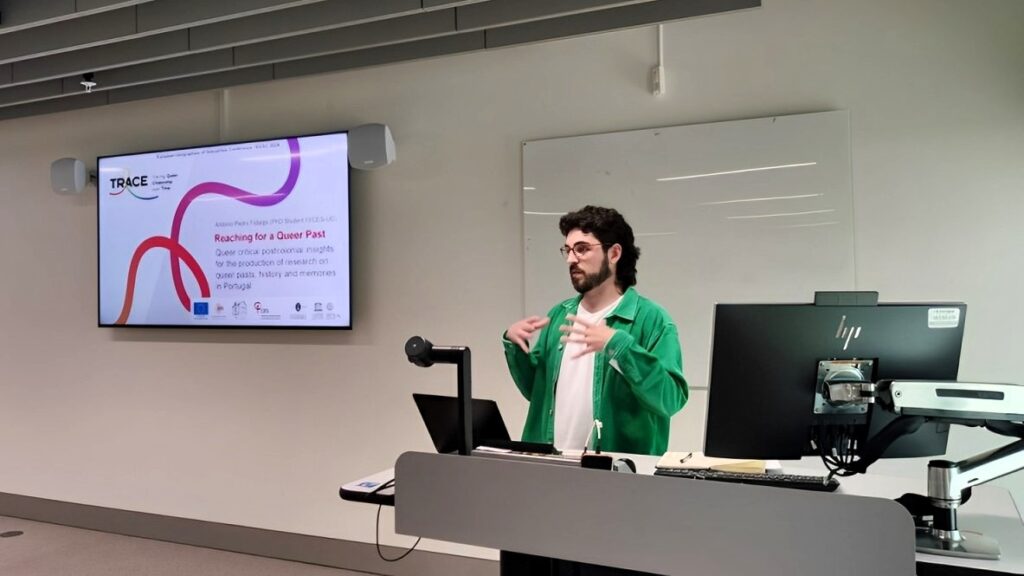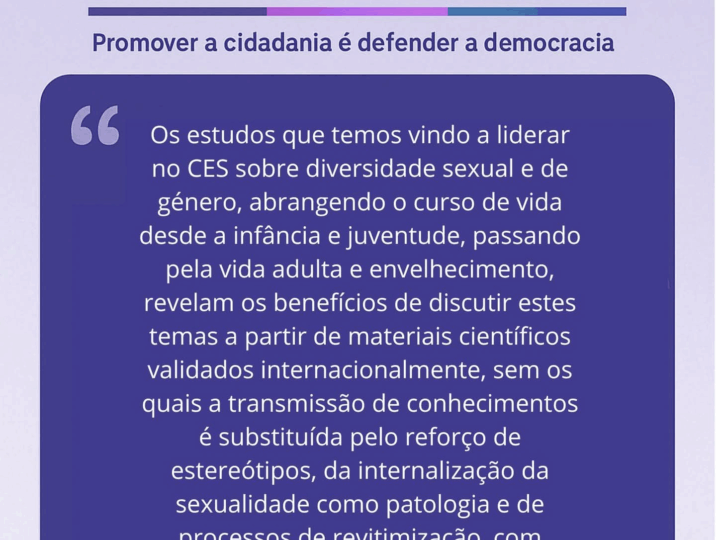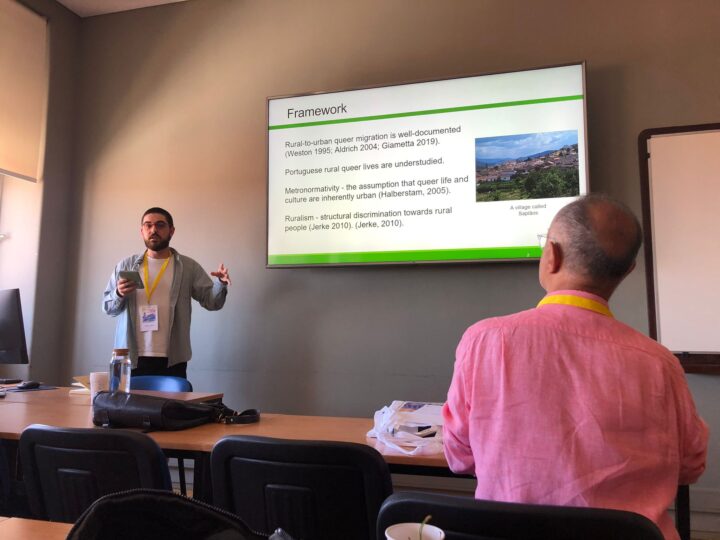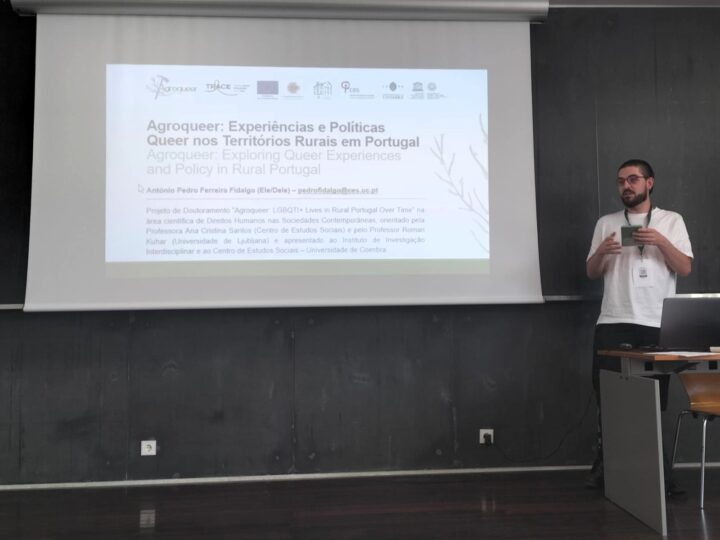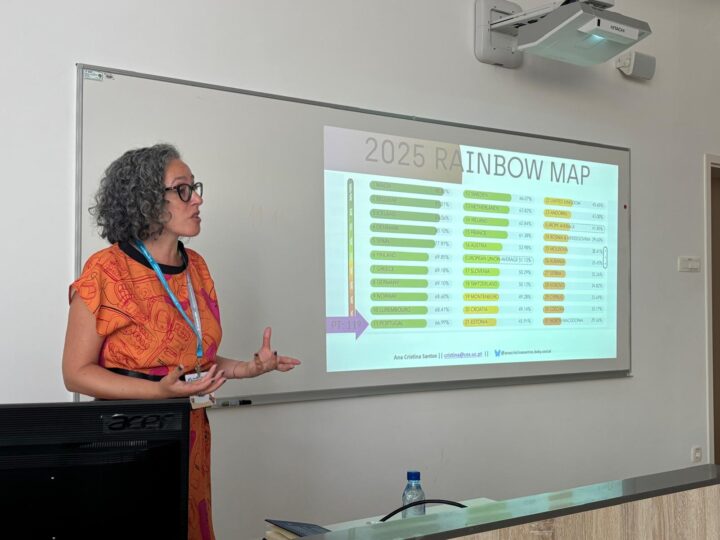On September 3, 2024, Pedro Fidalgo, TRACE’s Project Manager and PhD student, presented his paper “𝗥𝗲𝗮𝗰𝗵𝗶𝗻𝗴 𝗳𝗼𝗿 𝗮 𝗤𝘂𝗲𝗲𝗿 𝗣𝗮𝘀𝘁: 𝗤𝘂𝗲𝗲𝗿 𝗖𝗿𝗶𝘁𝗶𝗰𝗮𝗹 𝗣𝗼𝘀𝘁𝗰𝗼𝗹𝗼𝗻𝗶𝗮𝗹 𝗜𝗻𝘀𝗶𝗴𝗵𝘁𝘀 𝗳𝗼𝗿 𝘁𝗵𝗲 𝗣𝗿𝗼𝗱𝘂𝗰𝘁𝗶𝗼𝗻 𝗼𝗳 𝗥𝗲𝘀𝗲𝗮𝗿𝗰𝗵 𝗼𝗻 𝗤𝘂𝗲𝗲𝗿 𝗣𝗮𝘀𝘁𝘀, 𝗛𝗶𝘀𝘁𝗼𝗿𝘆, 𝗮𝗻𝗱 𝗠𝗲𝗺𝗼𝗿𝗶𝗲𝘀 𝗶𝗻 𝗣𝗼𝗿𝘁𝘂𝗴𝗮𝗹” during the parallel session on “Building Narratives of Older LGBTQ+ Lives in Southern Europe” organised by projects TRACE and REMEMBER at the 7th European Geographies of Sexualities Conference at the University of Brighton, UK.
Pedro’s presentation emphasised the importance of researching queer pasts, history, and memories to interrupt the (re)production of violence against queer people. He critically examined this research through a post-colonial perspective, highlighting the intersectionality of queer history with other forms of oppression, queer and trans migration patterns, and the Portuguese colonial past. His work suggests that a Portuguese queer archive must engage with the country’s colonial history and the diverse experiences of discrimination and violence within the queer community.
